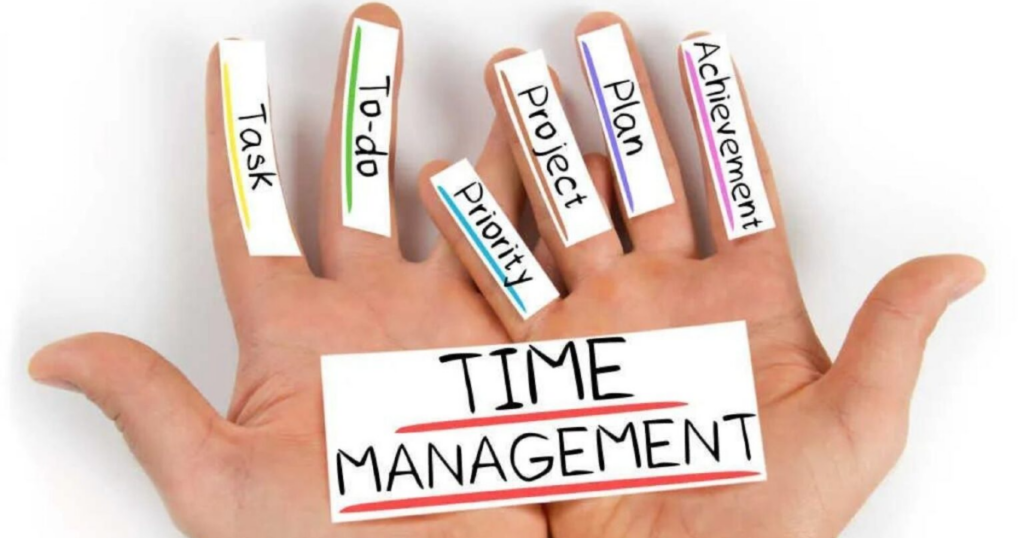
Let’s be real, most of us are not good at making the first move towards a conversation. Especially if it’s a stranger or a setting we are unfamiliar with. Yet, conversations drive connections, and connections are gold coins in the corporate world. Before you step into the corporate sector, you have to be well-equipped.
Can’t figure out how to navigate these challenges and start a conversation in your new workplace? Here’s our straight-to-the-point 8 step guide to nailing the much-needed networking skill.

Sometimes there’s just no clever way to do it. You have to begin at the beginning. That means you ask questions about the person. Asking such questions means you are definitely interested in a conversation. Ask them about their work, or about a vacation they recently took, or about how they organise their work desks.
In most cases, asking questions will lead you to discover shared experiences, maybe you both love traveling or hiking, or maybe you’re gushing over the same football team. There’s no end to the number of things you could discover about each other when you start asking about them. Be sincere with your questions and show interest in what they have to say, but do not ask intrusive questions.
One tip to go about asking the right questions is to feel the vibe of the person in front of you, and navigate the conversation accordingly. People usually like talking about themselves and their experiences, you just have to ask the right questions. If you can get this right, we guarantee that you will have a workplace friend in no time.
Examples:
“Is that your picture? Wow, where was it taken? The place looks amazing!”
“How long have you been working as a copywriter? What got you into it?”

Compliments go a long way when it comes to starting conversations, but don’t go overboard and end up becoming all mushy. Pay a tiny compliment to your colleague. It could be anything you like about them, like complimenting their handwriting if you see it in front of you.
Tell them you love their hairstyle. You could tell them how cool their shoes are. Anything that is right in front of you and would not make them feel like you are being too intrusive. Be genuine too, don’t say it just for the sake of saying it.
Compliments brighten up people’s days, and do wonders for their confidence. On top of it, you could easily ask questions to follow it up, like where did they get their shoes from or who is their hairstylist, and keep the conversation going.
Examples:
“I love this shirt on you. Where did you get it from?”
“This new hair colour looks wonderful on you! Which salon did you go to?”

Start mundane and general. Talk about the weather. Talk about the new pizza shop in town. Ask for café recommendations. Or the latest movie they might have watched. Something general, that is not invasive, but shows that you are interested in talking to them.
There’s no need to be clever with words and ideas when it comes to workplace conversation starters. All it needs to be is appropriate and relatable. As long as you keep it neutral you do not run the risk of hurting anyone. Small talk might be difficult for some people, but that is exactly how you can navigate office conversations: Start small, go big later. All in good time.
Examples:
“Do you think it’s going to rain later?”
“Did you try the café around the corner? How is it?”

You could also reverse the ball game here. If you find yourself in a fix, ask for their opinion on a matter you are struggling with. This works wonders because you have made the next person feel like they have helped you, their presence has mattered, and that is something that can make someone feel wonderful.
Trust us, making a person feel good is a good way to build friendships. If someone is able to help you, being on their favourable list is almost a sure thing. They trust you because you trust them. So, go ahead, do not hesitate to ask for help the next time you need it.
Examples:
“Can you please help me with this printer? It seems to have a mind of its own!”
“Can you please show me how to work this attendance app?”

You know what might work even when it can be considered very formal? An introduction. An introduction usually shows a clear indication that you are interested in beginning a conversation, and building a relationship with them. If you’ve just started and are completely new at the office or the department, then make the first move of going ahead and introducing yourself. You can then keep asking professional questions about them or the company, and continue the conversation.
Examples:
“Hi, I am Susan and I am the new copywriter. Nice to meet you. Which department are you from?”
“Hello, I am Susan. I just started today as the new copywriter. May I know your name?”

Passing a pleasant comment about some shared experience often does the trick when all else fails. You could make a general observation about something you have both experienced. Like the office party last weekend. Or the UNO game you played the evening before.
It could be something about the movie fandom you both like watching. If there’s a sports game you both love, try to cash in on something around it. Ask them what they felt during the latest match. Make them feel welcome, then let the conversation take its own course.
Examples:
“I didn’t know you were a Harry Potter fan as well! Which house are you in?”
“Last night’s party was so fun, did you try [insert name of dish]? I wish we could do this more often.”

Starting a conversation in the workplace will not be tricky as long as you stick to appropriate topics and issues. Asking for some kind of information is the easiest way to initiate a conversation in a business setting. It is safe, it is easy, and it is a question so it ensures a reply (most of the time!). Even if you already know the answer, there’s no harm in asking.
This is an amazingly easy way to begin building a rapport with someone. It could be something about the project you are working on together. Or it could be about some work trip you are going to. Or a conference you will attend. There are plenty of options to choose from. Take your pick.
Examples:
“Do you have any idea if we are allowed to bring our families on this trip?”
“Do you know if our CEO will be speaking at this event?”

Another smooth way to initiate a conversation is to offer help. If there is ever a time that you find yourself in a situation where you can be of some help, go ahead and offer it. It easily puts you into their good books, you are instantly likeable, and chances are the person will themselves drive the conversation.
Show genuine concern, that is a zero-fail way to earn someone’s trust in any situation, no matter who the person is or how long you have known them.
Examples:
“Let me help you carry all these items.”
“Do you need help decorating the office for Christmas?”
Since these are your colleagues, do stick to safer subjects like sports, family, tv shows, movies, food, and all the general stuff. It is alright to linger on the periphery of work-related issues. But do not go all intrusive at the very first go. Be polite, sincere, and aware.
Starting a conversation at a new workplace or in a business setting might seem like a daunting task in the beginning, but give yourself and the people around you some time, and you will soon get the hang of it.
Steer clear of asking personal questions (like if they’re married or single) or invading into areas that people prefer to keep to themselves. You’re just starting out, let the relationship grow in its natural way and avoid asking about their salary, political, or religious beliefs. It usually will not go down well with strangers. Also, definitely steer clear of gossip and controversies!
Hopefully, by following our tips, you will find it easier to navigate through office conversations. By keeping the conversations light-hearted, sincere, and devoid of controversial topics, you’ll soon be able to win hearts at your workplace.
And, with the right approach, you’ll also be able to keep the conversation smoothly moving forward in a productive way and ensure that you are building great business relationships easily. All the best, and happy conversations!

At a job interview, you’d want your potential employer to think the best of you.
However, what many end up doing during an interview is painting a picture of nervousness, instead of leaving a good impression. There’s no doubt that for anyone undergoing the interview process, the emotions of fear and anxiety would linger until you’re out of the door and done with the task.
But, with a little help and preparation, there’s no need to choke and stutter when a potential employer asks you to tell them a little bit about yourself.

First thing’s first, you need to know about the company you’re planning to join, and what the employer expects from you.
It’s crucial to find out what the hiring manager expects in terms of duties, qualifications, and experience before walking through the doors of your potentially new office.
And don’t be caught off guard if your interviewer surprises you with a random question about the company’s origins, to test if you know enough about them.
What the company does, its current dealings, and what is expected from you, can all be easily found on their website. Basically, you’re out of school, but you still have to do your homework!
A common mistake many job seekers make would be giving answers on the fly. Remember, you may not be the only one the company is interviewing to fill up a vacancy, so make sure your answers impress, to leave an impression.
Once you’ve made sure you’re equipped with all the necessary information about the company before attending the interview, it’s time to check out what you have in your wardrobe!

The sad thing is, we live in a superficial world. As much as we’d like for interviewers to assess potential employees based on skills, experience, qualifications, and perhaps even that charming personality – your physical appearance at the start matters more than we’d like to admit.
Here’s the easy part, you don’t have to start lifting iron at the gym just to make yourself look more presentable.
All you need is the right attire!
Basically, your dressing is a reflection of who you are, and you should definitely dress for the job you want. This depends on the company conducting your interview too.
For more corporate jobs, a professional look is required. If the job you seek is at a start-up company in the creative or tech industry, for example, then you’d probably make a better impression with a smart-casual look.
A quick tip: Make it a fun activity with a friend or family member! Get someone to do a mock interview with you, so you can work together on improving your first impressions. Mom or dad would also have some good advice on what to say, and how to conduct yourself.

Alright, you’re facing the interviewer now. Make sure to start off with a warm smile and polite greeting. Usually, a ‘Thank you for considering me for the vacancy’, or a ‘Thank you for inviting me for this interview’ works best.
Be sure to exude confidence, it’s a must-do for all who are attending an interview. Body language is essential in creating a great first impression.
You want to keep things professional, but still light and amicable, so you don’t accidentally ‘chill’ the atmosphere.
Maintain proper eye contact with the interviewer; good eye contact conveys your openness and interest to the interviewer, as well as shows that you’re assertive, attentive, and amiable.
Oh, and, please don’t slouch. You’re at an all-important interview, not Netflix and chilling at home on the couch!

‘So, tell me about yourself’. Common question; seems like any coherent answer would do, right?
Well, Coaching Creative founder Alina Campos suggests that interviews are usually initiated with a lot of small talks to get the ball rolling, which then leads to serious business.
“The interviewee’s nervous, but the interviewer’s trying to get their bearings too,” Alina Campos said.
Interviewers also ask the above question to gauge the job seeker’s confidence, level-headedness, and temperament to see if he/she would be a right fit for the job.
This is important for jobs like customer service, as well as sales and retail, given that they require some form of professional public relations skills to deal with (sometimes difficult) individuals.
Preparing and delivering carefully crafted answers will guarantee that the interviewer understands you, has an idea of your potential, and is made aware of your skills to efficiently tackle the job to come.
Furthermore, it shows that you put in the effort and did your homework. Employers appreciate that! Now, depending on how you put forth an answer, it helps interviewers decide what to ask next.
So here’s a trick: Whenever possible, craft your responses in a way that leads the interviewer to put forth further queries, where you can shine when answering.
A good way to achieve this is by leading your interviewer to your ‘professional story’. Basically, it’s how you grew and developed into who you are today. And no, we don’t mean where you grew up and which high school you went to.
Talk about your passions, achievements, skillset, and the influences which pushed you to try applying for jobs that bring out the best in you. Don’t be too lengthy in your answer though; three to five minutes should be more than enough.
Another good way to go about this question is by using the ‘Elevator Pitch’. This method requires you to craft a 45-70 word answer, and is done by tailoring your answers to match the job requirements. This allows you to explain yourself succinctly, while at the same time, generate interest in who you are and what you do.
In both of the methods explained above, you can bring up your past work experience that’s relevant to the role you’re seeking.
You can also cherry-pick and (gently!) push your interests, strengths, and work ethic to the interviewer in order to stand out from the crowd. Any one of the methods should do you well, but make sure you choose the one that suits you best.

It’s towards the end of the interview, you’ve thrown everything you got at them, and they seemed pleased so far. Now what?
Like the conclusion to a Whitney Houston concert, you want to end the interview on a high note. So, make sure to thank them for their time and consideration in shortlisting you for the job opportunity, and clearly state your intention to follow up.
Make sure you actually do follow-up with the interviewer and the company after you finish your interview.
You should request for the contact information of the interviewer/hiring executive so that you can continue to communicate with them. This may allow you to get additional information such as the duration of evaluation, a second interview, and perhaps to give him/her any references from your side.
You can also send any follow-up notes or information you may have missed out in the interview.
With the 5 tips above, you can be well on your way to dazzling your way through any interview that you’re attending. Always stay confident, and remember, “You miss 100% of the shots you don’t take.” –Wayne Gretzky.

Managing time is the key to success. Many people know that, but not many succeed at implementing it. However, time management skills are now more crucial than ever. Due to the Covid-19 pandemic, hybrid working culture has had employees feeling overwhelmed by ineffective organisation skills, including time management.
As the name suggests, time management is a skill to greatly organise and utilise your time, so that you’re aware of the tasks at hand and upcoming work schedule. More importantly, having time management skills help you to free up your time for personal well-being.
So, why does time management matter? Having a well-organised schedule helps you to carefully plan your tasks and execute them in a timely manner. Completing tasks in accordance with the due date helps build trust, reduce stress levels, and boost productivity, which explains why time management skills are highly valuable to both employees and organisations.
With a well-arranged workload that’s neatly organised, you’ll be able to see the whole picture of what tasks need to be completed, as well as when. This means that you should constantly update and check your schedule to ensure that no tasks overlap each other.
Setting both long- and short-term goals will boost your motivation to complete any and all tasks on time, as it guides you to see clearly what you’ll need to do and prioritise, in order to achieve your set goals.
Having good communication skills is one of the major keys to effective time management, especially when it comes to delegating tasks. When we’re able to do this effectively, it allows us to make plans with our colleagues to ensure that all tasks are assigned fairly and in accordance to each person’s capabilities, thereby allowing for goals to be met faster.

Knowing which tasks to prioritise will allow us to know which task needs to be accomplished first. There are multiple ways in deciding which are to be prioritised. The simplest way is to determine based on the due date of each task. The longer it’s due, the least it should be prioritised. However, remember to take into consideration the amount of effort needed to complete the task. Some generally take longer to finish, which explains why they have a longer due date.
Being good at delegating tasks will help in completing the tasks quicker, which leads to saving time. This skill is most needed when you’re in the managerial position. However, it’s just as important if you’re on the receiving end. Learning to say “no” is also crucial as it helps set boundaries to manage your time, in order to achieve your own goals.
Effectively managing your time will result in more productivity and efficiency in your career. Having a well-planned schedule will help you in completing the tasks promptly. It’s no secret that when one is given ample time to do their work, it’ll result in better quality. Hence, with excellent time management skills, you’ll always complete your tasks ahead of time.
Being good at time managing means you have lesser chances to procrastinate. Often enough, we’ll convince ourselves to do anything other than the main tasks as a stress-coping mechanism. Hence, if we’ve learned effective ways of managing our time and working according to the schedules we’ve created, it’ll reduce our urge to procrastinate over things. Creating a day-to-day to-do list will also help in getting the job done.
Too busy for yourself? That’s just an excuse for bad time management! When you’ve learned to delegate tasks efficiently, you’ll be able to create some time for yourself to do what you really enjoy doing. It’s bad for our mental health if we’re constantly working without a break. Your pent-up frustration will eventually lead to burnout, which will be harder to recover from.
Most of the time, if we’re bad with time management, we’ll end up taking too much work on our plates. The feeling of being overwhelmed will eventually increase your stress and anxiety. Having too much of those will ultimately harm both your mental and physical health. Naturally, when our health is affected, so will our productivity. Hence, it’s best if we’re able to manage our time properly to reduce unnecessary stress.

Making a daily schedule is crucial for efficient time management. With a well-organised to-do list, you’re able to prevent yourself from procrastinating over tasks that are always at the back of your head.
Generally, knowing how to multitask is a crucial skill. However, most of the time, when we’re multitasking, it tends to make us lose focus on the important task at hand due to all the other distractions we’re getting. And we know it sounds hard to believe, but most people who attempt to multitask lose productivity and time when they switch from one task to another.
Allocating time to do similar tasks is one of the ways that will help you to save time. When you allocate a certain period to do certain types of tasks, you’ll save yourself the mental energy of switching between tasks requiring different cognitive skills.
The Pomodoro technique is very effective, especially for people with ADHD. Pomodoro techniques generally structure your tasks into a short burst of focus time, in which you’re able to take a break after that burst.
For example, when working on a task, set a timer for 30 minutes and start working. Once the buzzer rings, you’re entitled to a 5 – 10 minutes break. These interval breaks between work are known as Pomodoro, which are very effective for efficient time management.
You should always prioritise important tasks as you plan your to-do list when you’re managing your time. Begin by identifying the due date and how much time is needed for each individual task. You should also take into consideration how important the tasks are.
There’s a difference between urgent and important tasks. Some tasks are generally more important than others even though they’re urgent – i.e., tasks given by the CEO and Head of Department. If so, you should tactfully push back certain less important tasks, especially if your peers or colleagues give them.

Little did you know, most of our time will be spent on unnecessary distractions such as social media, chit-chatting with colleagues, and more. And usually, the 2 minutes we said we needed to check social media will turn into 20 minutes without us even knowing. To avoid that, why not take a few minutes to learn about the things that may distract you so that you can avoid them and be more productive at work?
As Henry D. Thoreau once said, “It is not enough to be busy… The question is: what are we busy about?” With that being said, you should always be aware of your to-do list and what you’re spending most of your time on. We’re sure you’re aware by now how important effective time management skills can be in your everyday lives. So, start practicing these tips and tricks mentioned above and make it a habit so that you can utilise your time in doing important things!

Being passionate about the job you have and witnessing your own growth is easily one of the most satisfying feelings. After all, it takes hard work to be successful in what you do. That being said, are you sure you’re getting properly financially compensated for it?
If you have a feeling that you’re putting in more effort than what you’re getting in the bank every month; it’s time to ask for a raise. Here’s a complete guide on salary increments, and how to negotiate for one!
To put it layman’s terms: It’s a raise! A salary increment is an addition to an employee’s monthly/yearly salary. An employer can increase the amount that an employee receives as an annual salary, which doesn’t include bonuses.
There are several types of salary increments that you might be entitled to receive at work:
There are several reasons as to why you might be eligible for a salary increment, which may include:
The salary you’re currently receiving at your company was decided upon based on the capabilities and achievements of your last position. You’ve since then taken on new tasks and responsibilities, which is enough reason for a raise.
Employees who have a positive mindset are generally favoured by companies. This is because it’s infectious – and you’ll end up influencing your colleagues to do better as well. Consistency in your work ethic also helps prove your dedication to the job.
Receiving a new change of role usually comes with the opportunity to discuss a salary increment. Discuss how your new tasks and responsibility would be worked into this new range of salary.
Though it would be fun to burst into your boss’s office Hollywood-style, and shake your fist in their face demanding for it – salary increments in real life are definitely not that dramatic. Besides, pulling something like that would just result in them calling for security to evict you, which is far from what we want.

Here are some effective ways for you to negotiate a salary increment with your higher-ups, in a more professional manner:
Timing is everything. Always practice mindfulness when negotiating for a salary increment as it could easily go downhill if you lack tact. Think of the financial health of your company; has there been any recent successful campaigns?
Or alternatively, have there been budget cuts and employees were let go? Once you’ve understood how your company is standing financially, you’ll know when is the best time to negotiate for a salary increment that you’ll most likely receive.
Ask yourself how much have you contributed to your company. Have you been proactive in taking on tasks? Do you mentor other employees? Your role in the company is more important than you might realise, especially if you’ve committed a few years to it.
Have any huge wins from past projects? Now’s the best time to come forth with them. Create a presentation (extra brownie points for your extra effort!) or a binder of all your successful accomplishments as evidence of why you deserve a salary increment.
When it comes to salary increments, industry research is crucial. Find out how much the average salary is for people in your industry or similar jobs that offer the position. This will help you develop a range for your salary increment estimation. You wouldn’t want to put a price that’s too high and will get rejected on the spot – or one that is too low, either.
The art of negotiation is not a simple feat to conquer. It’s all about the right balance between push and pull; hitting that sweet spot before going in for the kill. Try writing an outline and running it through with a friend, or even practicing through bargaining at a market! Determining your tone as well as the confidence boost will help you when D-Day arrives.
There’s a sea of tactics that you can use to negotiate your salary increments. Here are our picks for the most effective steps to negotiate a raise.

Research and find what your company or department is currently struggling to achieve, or even introduce a new angle that could possibly be tapped into. Once you’ve got your supervisor interested, start proposing a detailed solution. This shows how committed you are, and therefore worth a salary increment.
Your market value has changed since you last joined your company. It’s time to do some industry research and look into how much someone with your skills and seniority is worth before putting in your request for a salary increment. It also helps to justify the range!
Leave humility at the door for this one; it’s time to show them what you do best. Bring up all of your skills, your responsibilities (and how you excel at them!), as well as your excellent performance record. This helps persuade your employer as you’ve just showcased why you’re a good catch.
Impact matters, which is why you’ll need facts to back up your statements. Provide solid evidence in the form of quantitative data, as measurable results do the best talking. Don’t be afraid to into deep detail about all of your achievements either!
Even though factors like discussing your worth may seem emotional, it’s important to keep your cool and remain professional. It’s not the time for low blows at colleagues or threats; keep all of that at the door! Remember that confidence goes a long way and stay true to yourself.
With all of the above in place, we hope that you’re ready to get that salary increment you deserve! Always remember to be prepared beforehand and enter with a clear goal in mind; your employer will value you for not wanting to waste either of your time.
Don’t forget to stay positive regardless of the results of the salary increment negotiation; it’s a learning curve! The experience itself is beneficial and will come in handy for the next time there’s potential for a raise in the future. All the best for your future ventures!

Social skills, also known as interpersonal skills, are soft skills that allow you to interact and communicate efficiently with others. Both verbal and non-verbal language skills are important parts of efficient social skills.
To be able to ‘commute verbally’ means communicating in an appropriate tone and volume based on the surroundings we’re in, and to ‘commute non-verbally’ means communicating with subtle body language such as facial gestures.
More often than not, all employers are looking for potential candidates with good social skills to fit their opening roles. Why? Because most jobs require their employees to work with others, so by not getting along with your colleagues or team members, it’ll definitely disrupt the organisation’s workflow.
And unlike professional skills (also known as hard skills), which can be acquired through training, education, and job experience, social skills can only be developed as a part of your personality traits.
Having interpersonal skills is knowing how to socialise with others, including workplace discussions and meetings, effectively. Understanding how to identify and interpret social cues such as your co-workers’ body language and moods will also allow you to work better and develop healthy relationships with them.
Having intrapersonal skills is knowing how to express your own thoughts, ideas, and emotions appropriately. Understanding the social boundaries between you and your colleagues and applying different strategies in engaging with those who can be somewhat difficult to handle are also essential parts of intrapersonal skills.

Verbal communication skills are skills that allow you to express yourself in a clear and precise manner so that others can easily understand you. Having good verbal skills allows you to transfer any message and information accurately. Verbal communication doesn’t only mean speaking but writing as well. Writing emails, letters, and reports appropriately, language, grammar, and format is also crucial in professional settings.
On the other hand, non-verbal communication skills are skills that allow you to communicate beyond mere words that spout through your mouth. Non-verbal communication includes facial expressions, body language, tone and pitch of the voice, and the physical distance between the speakers and the listeners.
When you develop your social skills, you’ll also be developing your charisma, which is a good thing. People who are more charismatic will attract people around them effortlessly. In many instances, personally, having quality relationships with many people will allow you to gain more friends, and professionally, having great social skills may get you the promotion or dream job you’ve always wanted. The more friends you know, the merrier!
Most of the time, when you interact well with people, you’re able to avoid the dreadful situation where there are internal conflicts between you and your colleagues. It’s a lot easier when you work in a place without having too much toxic people or ‘drama’. As a result, you and your colleagues will have similar interests and viewpoints, and share a common goal, which leads to greater efficiency when working. Workers who have a strong bond together are generally more loyal to the company they’re working for.
As mentioned, having good social skills will reduce conflict among you and your colleagues. And what does that entail? A better workplace environment. Getting along with your colleagues and understanding how they’re feeling will help create a friendly working environment. Everyone will also start communicating your thoughts and feelings efficiently. Finding joy in your workplace can yield enormous advantages, especially when it comes to building relationships between employers and employees.
Do you know why having a referral letter is essential when you’re applying for work? Because having one shows your hiring managers and employers that there are people who are willing to vouch for you. Hence, having a referral letter which speaks favourably of you will portray that you’re efficient, reliable, and trustable at your previous workplace. The ability to get things done is not the only soft skill your future bosses are looking for when hiring you. They are also looking into how well you can fit into the new team, as well as help boost their overall morale and working motivation.

Being an active listener is just as important as being able to communicate effectively. When you listen attentively to what your colleagues have to say and what they ask of you, it shows them that you’re comfortable with them sharing their opinions and input. It’s crucial to use certain non-verbal communication skills, such as maintaining eye contact and having open body language when you’re paying attention to your listeners. When you’re willing to listen to others, others will also be willing to listen to you. Hence, being an active listener is definitely crucial to developing excellent social skills.
Setting common goals that you want to achieve with your colleagues is essential to building your social skills. When you and your co-workers have common goals, it might just encourage the entire team to become more productive, together! When all your team members have a common goal, without realising it, you’ll start to have more meetings to check in on everyone’s progress on the assigned tasks. And when your team is able to achieve these goals, all of you will share a sense of achievement, which ultimately leads to becoming a better team.
It’s essential for you to be up-to-date with the local or worldwide trending news so that you’re able to have engaging conversations with others, strangers included. Like it or not, you’re going to meet someone new at any time in life. Hence, knowing what’s going on with the world or your country will give you the topics needed to hold a conversation. However, remember to avoid controversial topics such as religion and politics with your acquaintances, or someone you’ve just met. These issues may be interesting to you, but they might be offensive to others!
There’s more than just the trending news to help you keep a conversation going. It would help if you tried to venture into other resources such as books, podcasts, YouTube videos, web articles, and many more to improve your social skills. Besides having an even wider range of topics to talk about, you should also try going to classes or watching tutorials related to social skills, such as body language topics or how to be an active listener.
After knowing how having efficient social skills will help in both your personal and professional lives, we’re sure you’re wondering, “How can I acquire social skills when it’s not something to be learned easily?” Well, fret not, because as they always say, practice makes perfect!
Let’s start by assessing what we can do for us to be more approachable. Perhaps you have a face that reflects constant disapproval, or you have a hard time verbally expressing your thoughts during a meeting/one-on-one situation.
That’s where practising comes in, and you need to do it often. Try having an open expression that’s generally welcoming when you talk to others, and practise in front of a mirror, or with friends and family. Ditto for the hard time expressing yourself, just keep trying out various versions of what you want to say in front of a mirror or trusted people. The more you work on your social skills, the better you’ll become!

Regardless of what industries you’re interested in working in or your experiences, we all know that critical thinking is the most important soft skill every employer needs. Not having good critical thinking skills may make or break a person’s career.
But what exactly is critical thinking? Thinking critically can be translated as having the rationality to make logical and sound decisions when faced with difficult situations. In other words, having critical thinking skills means that decisions have to be made based on hard facts without the influence of personal opinions, biases, and feelings.
So, why are critical thinking skills essential? Having critical thinking skills can allow you to identify and analyse an issue or situation objectively with the facts, data, and evidence gathered related to the situation or issue. Critical thinking typically involves the process of asking thoughtful questions, so that we can analyse possible solutions to a problem. In this era of technology, where we’re overflowing with information, it’s essential to have critical thinking skills to determine fake news and information.
Being a critical thinker is easier said than done. You might need some time to practice in order to become a good critical thinker. But fret not, we’ve listed down a few things below that can help you kick start your critical thinking skills as long as you integrate them into your everyday life.

When we’re faced with challenging problems, the first thing to do is to remain calm. And only when you’re calm, you’re able to identify the core of the problem and narrow them down in a precise manner. To do this, all you need to do is ask yourself a few simple questions related to the issues found:
a. What do you already know about the problem?
b. How do you find out about it?
c. What are you trying to solve?
d. Is there anything that you’ve overlooked regarding this issue?
Often enough, we miss the bigger picture when we overthink the issues we are facing at hand. If we’re to seek out simple solutions, we first need to simplify the problems.
To be able to infer and make assumptions based on the information at hand is one of the crucial skills needed to master critical thinking. The information we gather doesn’t always spell out the solution to our problem. Hence, the ability to read and infer the collected raw data in order to draw conclusions can allow you to discover potential solutions when assessing a situation.
There will always be more than a way to resolve a problem, but which one is the best among all the solutions? When we’re faced with a problem where we have to decide on multiple solutions. There’s a good chance that we’ll start to doubt ourselves and the decisions we’re about to make. The key to making good decisions lies in your ability to collect and gather resources, which include raw data and information.

There will come a time when you’re bombarded with all sorts of different information, which include opinions and arguments when you’re solving an issue. Having a chunk of information might seem scary and confusing at first, but all you need to do is ask yourself these few questions to sort them all out:
a. Which piece of information is the most important?
b. Is the raw data gathered enough to make an inference?
c. Are the opinions based on facts?
d. Are there any biased elements in their arguments?
Take note that not all information and sources are valid, and you should take your time to process all of the information. Try to learn ways to differentiate both opinions and facts, as this might help in your critical thinking process.
I’m sure every one of us has heard of the phrase the more, the merrier. Similarly, while solving a problem, it’s always better if we have more solutions.
The best way to choose the correct answer for a question is always through the process of elimination. When you’ve developed multiple solutions, it’s always good to weigh the strengths and limitations of every possible solution, as it will help you make objective decisions.
Once you’ve concluded on the few solutions in solving a problem, it’s a common practice to explain and discuss these issues and possible solutions with your colleagues and relevant stakeholders so that everyone is aligned with the operation process and understands what they’re supposed to do.
Employers are always looking for candidates with critical thinking skills, which is why you should consider highlighting the below skills in your resume or during an interview:

Observation skills are important to employers as people who are good at observing can identify a new problem quickly.
People with good analytical skills can often collect and process massive information to identify trends and possible solutions to a problem.
Having good interpretation skills can help you draw meanings and conclusions when you’re presented with a massive chunk of data.
Having inference skills allows you to assess and determine the sufficiency and reliability of your own knowledge in solving a problem.
Evaluation skills help a person in making good decisions based on the available information related to the problem.
Having good communication skills allow you to deliver and receive information in a clear and precise manner.
Having good problem-solving skills allows you to resolve arising matters quickly.
Having an open mind allows you to consider other possible solutions based on the view of others.
People with good creative skills are able to generate new or different ideas in solving a problem.
Having good decision-making skills helps you choose the best possible solutions when you are presented with more than one options.

As quoted by Einstein, “We cannot solve problems with the same thinking we used when we created them”. Having the ability to analyse and evaluate complex problems objectively is always vital for anyone who’s aiming to succeed in their life. Even if you’re able to check most of the boxes on the skills listed above, you should consider further improving your critical thinking skills to have a more fruitful professional life.
Consider expanding on a certain technical skill related to the industry you’re currently working in so that it helps you to identify and solve problems efficiently.
Learning is a lifelong process, and it shouldn’t stop after your bachelor’s degree. Consider taking additional courses related to the industry you’re interested in to develop your critical thinking skills further.
You should seek advice from professionals in your field of interest and speak out more during meetings in providing solutions. Don’t be afraid to receive constructive criticism as it shows you still have room for improvement!

Did you know that employers from any industry are looking for candidates with strong personal skills? Having a good set of personal skills allows you to shine and stand out from the other candidates when you’re searching for a job. Why? Because your personal skills demonstrate your personal development, which reflects who you are, and what you’re passionate about in life.
It’s not rocket science that who you are and what motivates you will also influence your everyday life, including those who are around you. Which explains why personal development is just as important in your professional career, as it represents how well you understand your own strengths and weaknesses.
Personal development revolves around the concept of life-long learning in which an individual continues to assess their life goals, purposes, and values as they grow. In the meantime, they also develop the skills and qualifications required in order to reach their full potential.
Personal development skills can be trained through education, getting advice from mentors and trainers, self-help, and more. In other words, personal development helps you at acquiring the necessary skills to maximise your potential. As a result, these skills will greatly contribute to your professional growth and goals, ultimately leading you to achieve your personal and career advancement.
You’re more likely to succeed in life when you have strong personal skills, as it reflects your passion for the job you’re doing, helps motivate you to finish all of your assigned duties, induce willingness to help your colleagues in completing a project, and more!
Personal skills, often known as ‘soft skills’, are completely different in comparison to professional skills, also known as ‘hard skills’.
Personal skills are those related to your personality and behaviour, which cannot be quantified, such as communication skills and leadership skills. Employers often look for candidates with a good set of personal skills. This is why you need to also highlight these in your resume. It’s also best to describe your soft skills experience during your interview, paired with specific examples.

On the other hand, professional skills are those that your employers can easily measure, such as programming skills, graphic editing skills, copywriting skills, and more. These skills can usually be acquired through education, courses, on-the-job training, and certification tests. You can demonstrate your hard skills by preparing a related portfolio to showcase the previous work you’ve completed.
As the name suggests, communication skills are important for receiving and delivering messages/instructions in a clear and precise manner. These include your writing, listening, and speaking skills. When you have a good grasp of these skills, they allow you to confidently communicate your ideas and feelings using an appropriate tone suited to the situation you’re in.
Organisational skills are skills to manage and tidy up your physical and digital workspaces, including your ability to organise a well-planned schedule according to priority. With good organisational skills, you’ll be saving more time, have a significant increase in productivity, and reduce the miscommunication rate in the workplace.
Problem-solving is your ability to gather information and make the decision to handle challenging situations that may arise out of nowhere. As a great problem-solver, you’re expected to find the most efficient solution and make the best decisions to overcome any obstacles you’re facing. Hence, learning how to stay calm, gather and analyse data and information, as well as assess facts and opinions, are essential to being a good problem-solver.
Leadership skills are essential when you’re in charge of managing a project. Good leadership skills help you to guide your colleagues in moving forward to reach a common goal. Now, there’s one important thing to keep in mind: Being a leader is different from being a boss. Why? Because other than delegating tasks to ensure things sail smoothly, a good leader will help motivate their team members, build their confidence, and improve the team’s overall morale.
Having good time management skills allow you to accomplish something big within a short period of time. In other words, time management skills help you save more time, allowing you to focus and be more productive on the tasks at hand. As a result, you’ll be able to acquire a better work-life balance.
Having compassion in the workplace shows that you’re willing to help, care, and share the pain of your colleagues when they’re in need of assistance. Compassion is a combination of essential elements to tend to individuals in need, such as care, empathy, and love. Showing compassion to your colleagues who are in pain or are undergoing some personal stress will make them feel more secure and comfortable at work.

When you’re willing to commit to the people and things that matter to you, including your career and the company you’re working with, it’ll tremendously help improve your workplace relationships. As a result, these personal and professional growths will help you to be more successful in accomplishing your goals. When you’re committed to something, you’ll also enjoy the time you spend working on things you’re passionate about!
Having a good work ethic is one of the most important personal skills that all employers are looking for. Candidates who are ethically positive, hardworking, and honest will essentially increase an organisation’s overall morale. These will result in motivating and promoting fairness and decency among the employees, which ultimately leads to greater productivity and enhances a company’s performance.
Now that you understand how personal development skills can be beneficial to both your personal and professional lives, don’t you want to acquire them right away? But as previously mentioned, personal development skills are not something you can learn overnight with mere training alone.
So how can you start to practise these personal development skills in the workplace? Well, let’s take baby steps and begin by being a better listener in the workplace. We should also learn to be more cooperative so that we can work well with others. Learn how to organise and manage your time, tasks, and workplace materials. When you’re faced with challenging situations, remember to believe in yourself and the decisions you’ve made.
As a leader (or if you’re aspiring to be one), you should always be truthful to your colleagues and team members and are willing to guide those around you. Your workplace environments are forever changing, so learning to be flexible and quickly adapt to change is essential. Lastly, learn to love your job and career. If you’re committed and passionate about what you do, the people around you (yourself included!) will be more reliable and productive when it comes to working.
As difficult as personal growth and development can be, investing in yourself will always help build a solid groundwork for your professional career. And as the Queen of Jazz, Ella Fitzgerald, once said, “Just don’t give up trying to do what you really want to do. Where there is love and inspiration, I don’t think you can go wrong.”

To learn something new or to advance an already existing skill has never been as easy as it has been in the last few years. E-learning has taken the world by storm and has become the preferred method of learning regardless of age.
There is no doubt that the rise in popularity of e-learning is due to convenience, simplicity, being budget-friendly, and a fun way to learn. There’s so much control given to the student, in terms of the topic, type of lessons and resources, schedule and pace of learning. These are also contributing factors to keeping learners highly motivated, with the bonus of it being time flexible.
To stay at the top of their game, and be able to participate in every opportunity possible, professionals need to keep their skills set sharp to compete and stay desirable in the talent pool.
E-learning works just as well for professionals as it does for anyone else. The fact that it is convenient means that any online learning course can be made to fit into the busy schedules of the most desirable professional. The simplicity aspect of it is in regards to the quick and almost intuitive way to learn that won’t frustrate even those that are inexperienced with e-learning.
The content and resources are readily available at a budget-friendly price. Professionals at any point in their careers will be able to join an e-learning platform or online course because of this financial accessibility. The fact that e-learning can be fun and just as interactive is a bonus that will help professionals navigate resources to gain new skills.
All of these benefits to e-learning also make it easier for employers that want to help their team to level up their skills for the betterment of the company. Instead of dealing with the difficulty of managing training schedules, employers can opt to get their employees memberships to e-learning platforms or access certain courses.
Both professionals and their employers only stand to grow and go further with e-learning.
Staying relevant is key in an industry that is continuously developing. Tech professionals need to ensure that they stay desirable in the market by keeping their skill set up-to-date on the newest, most preferable and beneficial skills. These skills and the ability to keep learning will help build credibility and value throughout their career.
It’s no secret that keeping skills up-to-date can be challenging to do, especially when you’re a tech professional. It is almost impossible for a single working tech professional to keep up with the fast-moving changes that happen in the international tech world.
There is an obvious gap in the pace that tech is moving and the number of skilled workers that can fill those positions. Trying to learn everything might not be the best way to land those roles. The best course of action is to narrow down, pick an area of tech expertise that is of interest to you, and develop skills to that accordingly. There is less pressure placed on tech talent this way but still spotlights them as desirable for their skills in their tech field of expertise.
There’s nowhere else that understands the importance of e-learning, industry news and peer discussions to a tech career like the career developing platform GRIT Community. Created to provide a safe space for professionals to converse with peers and develop deeper insights into the on-going issues that the tech industry-related faces. It is free to join and supports tech and digital professionals with an array of career developing resources.
The GRIT Community membership offers free skills gap analysis to help professionals pinpoint what skills are needed to advance their careers further in the direction they want. It’s an essential tool that can provide professionals in tech with a better understanding of what skills are required in order to move up the career ladder. Members also receive a detailed and personalised report with the specific steps to developing those skills.
By far the most beneficial tool and resource offered by the GRIT Community is GRIT Smarts. Members of the GRIT Community can also opt for a 2-week free trial. This is an e-learning platform that houses over +100,000 industry-focused online courses and resources for only $6.00USD/month (1-year minimum), one of the most affordable e-learning platforms available right now.
Choose as many from over 20 content pillars of topics that are tailored to your learning interests. This way you can find what’s relevant to you from the thousands of courses and resources available.
Gain a head start before everyone else with insights into the digital transformation for tech leaders or business strategy for the post-pandemic economy. Dive deep into everything content marketing and SEO with CreativeLive or learn to code python with the Microsoft team.
To make things even easier, courses are bundled up into specific areas of skill development, such as business development and innovation, software engineering and finance to name a few. In each area of skill development, the courses navigate you from the basics to the expert and industry level skills. Difficulty levels for all courses will vary, so it’s best to work your way up with a specific content creator that speaks to your learning style.
You also earn rewards as you complete each area of skill development in any topic and gain confidence in your newly developed skills. These rewards come in terms of badges to mark your progress along your e-learning journey.
Tech professionals of all levels now have the opportunity to fill in their skill set with simple-to-navigate and convenient e-learning courses. Career advancement has never been easier!

When something goes wrong, it is often referred to as a problem. We all face problems everyday, whether in our personal life or the workplace. They are undesirable events that can cause a domino of other difficulties, eventually becoming a hindrance in accomplishing goals. In order to ensure operations are always running smoothly in an organisation, problem solvers can often save the day.
Problem-solving involves the technique of recognising a problem, establishing the source of the problem, as well as identifying, evaluating, and examining options for the best solution, and lastly, applying the solution to solve said problem. If you want to advance in your career, developing this skill is essential. Most occupations require solving problems to a certain extent. Employers value problem solvers because they want someone they can rely on to remain calm and composed, and think things through logically when anything goes awry.
A significant part of problem solving includes establishing the root cause of the problems rather than just the symptoms. A customer complaint, for instance, is a problem that must be dealt with. To do this, the first step is to inquire about the reason for the complaint because once the source is identified, it can be eliminated to remedy the problem. Here are five steps commonly used in solving problems:
Finding out the cause of the problem requires gathering and analysing data, isolating potential causative elements, while evaluating which components must be addressed to achieve a solution.
Relevant skills: Data gathering, data analysis, historical analysis, and fact finding.
A single solution is rarely enough when it comes to solving complex problems. The next step is to consider a range of potential remedies to cover all the necessary bases, and minimise chances of failure. So that when one plan fails, another plan can be implemented to solve the problem.
Relevant skills: Thinking outside the box, brainstorming, forecasting, prediction, project planning and design.
This stage of the problem solving process is typically done by higher rank employees such as team leads or relevant decision makers. It involves estimating potential costs, the necessary resources, and possible obstacles to effectively implement a particular solution.
Relevant skills: Teamwork, discussion, analysis, collaboration, test development, mediation, and prioritising.

Once there is a plan of action, it must be employed together with assessments that can quickly and correctly evaluate whether or not it is working.
Relevant skills: Project management, project implementation, collaboration, time management, benchmark development.
Implementing a solution is one thing, but having systems in place to gauge how or how well it is working is necessary to know if any adjustments need to be made, or if the problem is entirely solved.
Relevant skills: Data analysis, communication, customer feedback, surveys, follow-up, troubleshooting.
Problem solving skills assist in identifying the cause of a problem and devising an appropriate solution to overcome it. While it is a skill on its own, there are other related skills that contribute to this ability.
Conducting research is essential to pinpoint the cause of a problem and understand it completely. Then, it is about gathering additional information about the issue at hand by brainstorming and learning in order to look at it from different angles.
It is important to first assess the situation before beginning to solve any problems. Analytical skills help in assessing challenges and employing impactful strategies. They also go hand-in-hand with research skills to evaluate good and poor ideas.
You’ll likely end up with several approaches to overcome a single problem. The ability to assess the benefits and drawbacks for every strategy is essential to evaluate the best approach, and whether or not it is attainable or feasible for the business.
Evaluation skills determine which solution to a problem is the best. Another skill you must master is the ability to collaborate with others and draw on their knowledge to better understand all of the possible angles to the given problem. Then, once you’ve found a good solution, your decision making skills will make the call and put it into action.

The ability to communicate effectively is vital in ensuring that all team members are on the same page. You must be able to convey the problem, ideas, and propose solutions so that they can be successfully implemented.
Some problems are more complex than others. This is why to be a great problem solver, you need to be able to think creatively to find the best solution. Work together with people to understand the issue in-depth, what has been tried before, as well as exploring innovative ideas to tackle it.
Dependable and trustworthy employees are what employers are looking for. Not only will you help them to look good as daily operations are always kept moving smoothly, but they don’t need to keep checking up on you to make sure you get the job done.
Some people are born with natural problem solving skills. You can also develop or improve these skills with experience and practice.
Practice solving various hypothetical problems so that you familiarise yourself with the problem-solving process. Doing this with someone else from the same profession will help keep things interesting. Whenever possible, try role-playing to further hone your problem-solving abilities.
Problems exist in every facet of life. Rather than shy away from them, you should take every chance you can to get creative and come up with solutions.
To become a well-rounded problem solver, you must continue to learn and stay up-to-date in your field of expertise. There are a ton of courses available that’re industry-specific. This way, you can learn about the possible challenges that you may face down the line, as well as how others in the industry effectively deal with these challenges.
Although certain skills are unique to particular industries or career paths, there are basic capabilities that apply to several professions. These are regarded as fundamental employability capabilities that let employers know what kind of employee you’ll be down the line.

Employers are always searching for individuals who possess these qualities. The more relevant your skills are, the more appealing you’ll seem to hiring managers. Here are the top employability skills that recruiters are searching for:
Emphasising your most desirable skills on your resume and cover letter immediately makes it more attractive. It can also help you to better articulate the value you can bring to the organisation.
You can showcase your problem-solving skills on your resume either in the “skills” or “achievements” section. Ideally, you should have specific examples which you can state in short and succinct phrases. Instead of simply claiming that you’re a problem solver, define the valuable problem solving skills you have that’re intrinsic to the special trait you possess.
A cover letter is another great place to emphasise and elaborate your problem-solving talents. Past experiences are most convincing so give several summaries of any past instances where your problem solving skills saved the day. If you don’t yet have any stories to share, do some research and look into a problem that you think your potential employer is trying to solve or might face in the future and describe how you plan to solve it.
During the interview stage is where you can elaborate on the points you included on your CV and make them come alive as you tell the story in person.
Do you have a knack for nipping challenging problems in the bud? Are you someone who tackles problems from a logical and creative angle, evaluates viable solutions, and solves them in a timely manner? If this is the case, your problem solving skills will serve you well throughout your career. They’ll even continue to level up as you gain more experiences.
One of the primary ways hiring managers and recruiters evaluate candidates is their ability to solve problems, as those with excellent problem-solving skills are more likely to work independently and proactively. If you’re still on the lookout for your dream job, keep a list of the jobs you’ve had and the problems you’ve solved along the way. So that when you see a job posting that you think will be a great fit, all you need to do is update your CV and sell your skills further at the interview to seal the deal. Good luck!

Job interviews can be the stuff of nightmares. There’s the one-on-one, or sometimes even one-on-a few-other-people, who are there to judge you while you answer some of life’s toughest questions to land a job. One interview question that you can rarely escape is: “Why should we hire you?”.
This question might sound simple and straightforward, but how you answer it speaks volumes, as it has the power to set you apart from the other candidates vying for the same position. To help you formulate the best response so that you’re prepared to look your interviewers in the eyes and knock their socks off with a confident yet effective answer, this article is for you!
Before we dive into the examples, it’s first important to understand why this is a favourite question among hiring managers. Once this question is out in the open, your body language, the way you reply, and what you say will then be assessed. Interviewers ask this question to find out a few things. First, they want to know why they should hire you over other equally suitable candidates.
Secondly, they want to observe how you deal with challenging situations because this question has the ability to trip up applicants, especially those who come unprepared. Third, how do you explain that you are the best candidate for the job without coming off too strong or sounding too boastful?
The key to nailing this crucial interview question is with a little research and a lot of preparation. Ultimately, you don’t want to tell an hour long story, so it’s important to nail down the most relevant, effective responses.
You can find out the exact skills, qualifications, and experience that the particular role requires through the job posting or job description. Go through all the points and look for connections with the abilities, knowledge, and character traits that you can bring to the table.

Research the company’s vision, mission, goals, and recent announcements to gain more insight and ideas for crafting the ideal response. You can use this information to explain how you’re aligned with the organisation’s values, and how you can be a reliable asset in achieving key business objectives. Another important point you can emphasise on, is how you fit into the company’s culture.
Once you’ve compiled a comprehensive list of the skills and attributes required for the role, think about how you can demonstrate that you possess each one. Whether in a professional, academic, voluntary or co-curricular context, describe how you used the skill or exhibited the quality in getting something done. Make a point of mentioning any successes or accolades you obtained as a result of using the talent.
For instance, if a position requires good leadership abilities, you could say:
“During my internship at X, I led a team of six in launching an effective marketing campaign that resulted in an increase in sales.”
Wherever relevant, use numbers or other quantifiable data to back up your successes. For instance, using the example given in the previous point, you could say that due to your successful marketing campaign, the company saw a 30% increase in sales.
Practicing your pitch is necessary, but it’s not a good idea to memorise your response word for word. You not only run the risk of seeming bland, or inauthentic, but you might also get distracted and struggle with getting your response back on track. It’s advisable to have a general idea of the points you want to convey, and then adjust your answers based on how the interview is progressing to create a better conversational flow.
Preparation is essential in helping you narrow down effective responses that speak directly to what your potential employers are looking for. If you simply wing it and list a bunch of reasons why you think you’re the best candidate, your answer will seem disorganised and less compelling.
Striking a balance between talking about your achievements and being too confident can be tricky. If you come across as arrogant, it may raise some concerns about how you’d perform, or fit in a team as an employee. The best way to avoid this is to keep your responses brief and precise, conveying only the most important (and relevant) points.

Here are some examples that you can immediately use, or even to guide you in coming up with your own customised response:
In my eight years as a sales manager, I’ve successfully led teams of more than 15 employees. My motivational techniques earned my region the title of “Region of the Year” five years in a row for continually reaching and exceeding sales targets. I look forward to applying my experience as a leader to this role.
As a recent graduate with a Bachelor’s in Communications, I believe that I can contribute cutting-edge email marketing techniques and ideas to your business. During my internship as an email marketer for a digital software start-up, I gained hands-on experience in creating engaging content within a fast paced environment. My participation in an email campaign resulted in an 11% increase in engagement. I’m confident that I’d be a great asset to your email marketing team because of my knowledge and experience in the field.
I meet all of the requirements for the position, in terms of skills and experience. As a result, I’m convinced that I’d be an excellent fit for this project management role. My experience in leading successful projects for the top companies has taught me a lot, including my excellent people skills which have helped me to foster great relationships with vendors, developers, and senior managers alike. On top of this, I’m passionate about the field, and I’m committed to producing high-quality work.
Frankly, I think the job description was crafted specifically for me as I have six years of programming experience, a glowing track record of successful projects, and proven proficiency in agile development procedures, all of which you’re searching for. Moreover, working directly with senior managers has improved my communication skills, and I’m well equipped to work on high-profile projects involving multiple departments. I’m confident that I have the necessary experience to contribute right away and I’m looking forward to the opportunity to do so.
According to the job description, you’re in search of a sales executive with experience in managing a team of at least a dozen personnel. In my five years as a sales manager, I’ve honed my ability to motivate, inspire, and build strong teams of up to 15 employees across different departments. My inventive ideas in encouraging employees to reach (and exceed) quarterly deadlines has earned me the title of manager of the year in my previous company. If you hire me, I’ll apply my managerial skills and business acumen to work for you.
The key to answering “Why should I hire you” is really about demonstrating to your interviewers that you’ve explored and discovered your finest skills and talents, found out how they define you and set you apart from others, as well as how you intend to use them to add value and fit into the company culture.
Do your research and create a list of your unique qualifications that are relevant to the role, study the examples above, and practice, practice, practice! Now that you’ve gathered all of the information necessary to construct an effective response, you’re well on your way to acing your interview. All the best!